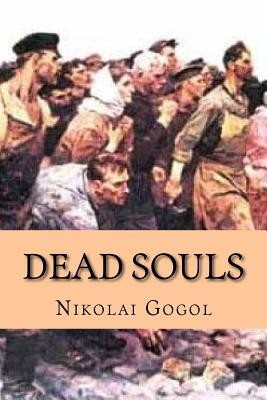
- Išsiųsime per 10–14 d.d.
- Autorius: Nikolai Gogol
- Leidėjas: CreateSpace Independent Publishing Platform
- Metai: 2017
- Puslapiai: 256
- ISBN-10: 1544277008
- ISBN-13: 9781544277004
- Formatas: 15.2 x 22.9 x 1.4 cm, minkšti viršeliai
- Kalba: Anglų
- Extra -15 % nuolaida šiai knygai su kodu: ENG15
Atsiliepimai
Aprašymas
Since its publication in 1842, Dead Souls has been celebrated as a supremely realistic portrait of provincial Russian life and as a splendidly exaggerated tale; as a paean to the Russian spirit and as a remorseless satire of imperial Russian venality, vulgarity, and pomp. As Gogol's wily antihero, Chichikov, combs the back country wheeling and dealing for "dead souls"--deceased serfs who still represent money to anyone sharp enough to trade in them--we are introduced to a Dickensian cast of peasants, landowners, and conniving petty officials, few of whom can resist the seductive illogic of Chichikov's proposition.
EXTRA 15 % nuolaida su kodu: ENG15
Akcija baigiasi už 2d.20:07:29
Nuolaidos kodas galioja perkant nuo 10 €. Nuolaidos nesumuojamos.

- Autorius: Nikolai Gogol
- Leidėjas: CreateSpace Independent Publishing Platform
- Metai: 2017
- Puslapiai: 256
- ISBN-10: 1544277008
- ISBN-13: 9781544277004
- Formatas: 15.2 x 22.9 x 1.4 cm, minkšti viršeliai
- Kalba: Anglų
Since its publication in 1842, Dead Souls has been celebrated as a supremely realistic portrait of provincial Russian life and as a splendidly exaggerated tale; as a paean to the Russian spirit and as a remorseless satire of imperial Russian venality, vulgarity, and pomp. As Gogol's wily antihero, Chichikov, combs the back country wheeling and dealing for "dead souls"--deceased serfs who still represent money to anyone sharp enough to trade in them--we are introduced to a Dickensian cast of peasants, landowners, and conniving petty officials, few of whom can resist the seductive illogic of Chichikov's proposition.





Atsiliepimai